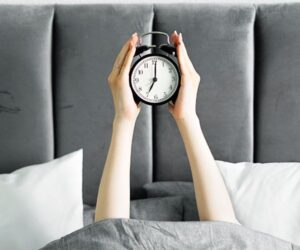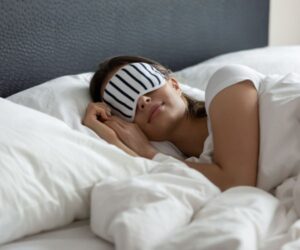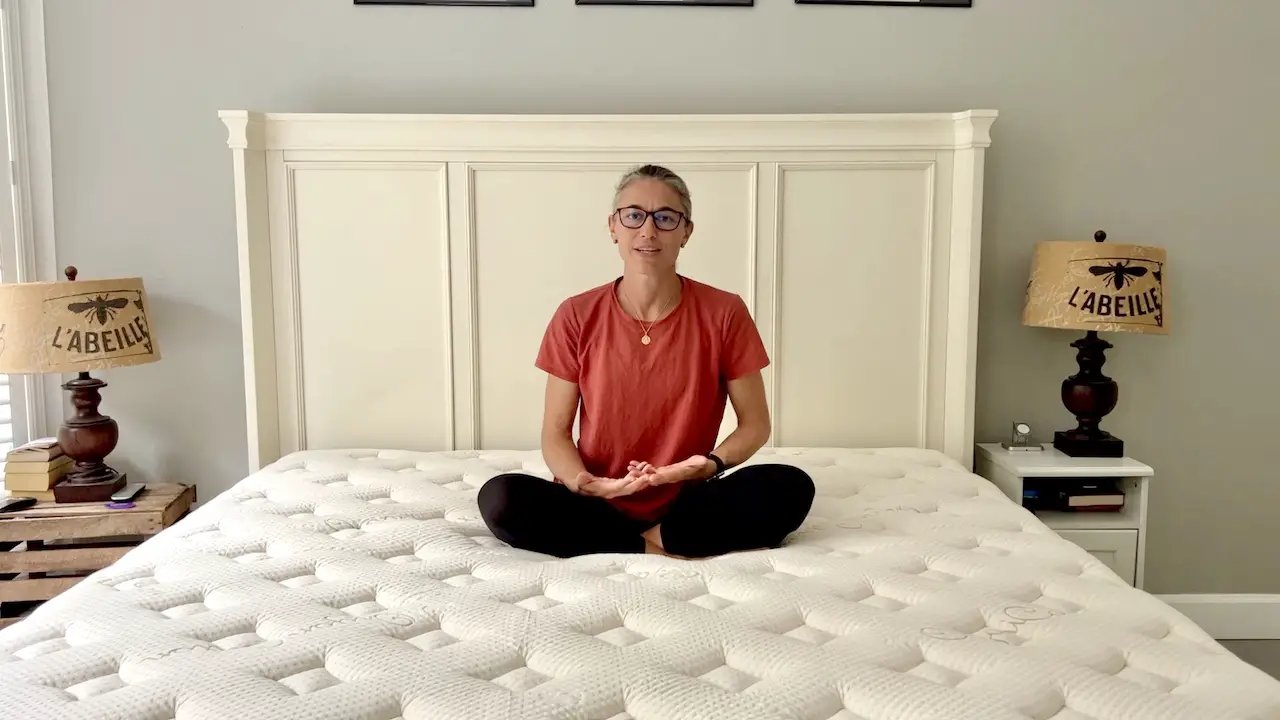ALARM SNOOZING
Is Snoozing Bad For You?
Waking up to an alarm can be a struggle, and many people rely on the snooze button to get a few extra minutes of rest. But is alarm snoozing actually helpful, or is it doing more harm than good?
Let’s explore the effects of snoozing on sleep quality, productivity, and overall health, and provide tips on how to break the snooze habit.
Table of Contents
What Is Alarm Snoozing?
Alarm snoozing refers to the act of delaying wake-up time by pressing the snooze button on an alarm clock or smartphone multiple times. While it may feel like you’re getting a little extra sleep, the effects of snoozing can be more complicated than they seem.
Later in this article, we will explore a strategy used by many, of setting up two alarms. One to snooze for 10 minutes, and a second, 10 minutes later, to get out of bed.
Is Snoozing Bad for You?
The debate over alarm snoozing continues, but research suggests that hitting the snooze button may have negative consequences. Here’s how snoozing can affect your health and well-being:
1. Disrupts Sleep Cycles
Each time you snooze, your body may re-enter a light sleep stage, only to be abruptly awakened again minutes later. This fragmented sleep can leave you feeling groggy and disoriented, a phenomenon known as sleep inertia.
2. Reduces Sleep Quality
Snoozing does not allow you to complete a full sleep cycle, which can interfere with deep sleep and rapid eye movement (REM) sleep. Over time, this can lead to poor sleep quality and daytime drowsiness.
3. Impacts Mood and Cognitive Function
Interrupted sleep caused by alarm snoozing can impair cognitive functions such as memory, decision-making, and concentration. It may also contribute to increased stress and irritability throughout the day.
4. Can Lead to Chronic Fatigue
If you consistently rely on snoozing instead of maintaining a regular sleep schedule, you may develop sleep deprivation, leading to chronic fatigue and an increased risk of health issues such as obesity, heart disease, and depression.
Why Do People Hit the Snooze Button?
Many people hit snooze out of habit, but several underlying factors contribute to this behavior:
Inconsistent Sleep Schedule – Going to bed at different times each night can make waking up difficult. It is best to keep a consistent sleep schedule, 7 days a week. Aim at going to bed and waking up at the same time every day to help your body and mind understand when it should be resting.
Sleep Debt – Not getting enough sleep leads to excessive morning grogginess. The National Institute of Health recommends at least 7 hours of sleep each night, stating that most adults should sleep 7 to 9 hours each day.
Lack of Motivation – If you don’t feel excited about starting your day, it is tempting to stay in bed longer. We totally get it, and we don’t judge 😉
How to Stop Alarm Snoozing
Breaking the snooze habit can lead to better sleep quality and improved productivity. Here are some practical tips:
1. Set a Consistent Sleep Schedule
Go to bed and wake up at the same time every day, even on weekends. This helps regulate your body’s internal clock and makes waking up easier.
2. Place Your Alarm Across the Room
If your alarm is within arm’s reach and you are a serial snoozer, you make it too easy to hit snooze. Placing it across the room forces you to get out of bed to turn it off. From then on, you might as well start your day!
3. Use a Gradual Wake-Up Alarm
Some alarm clocks and smartphone apps use light and sound to wake you up gradually, reducing sleep inertia and making waking up feel more natural.
4. Optimize Your Sleep Environment
A comfortable mattress, breathable bedding, supportive pillow, and a dark, quiet bedroom can improve sleep quality, making it easier to wake up refreshed. You may just need a couple of easy upgrades to improve your sleep quality and make waking up easier.
5. Develop a Morning Routine
Establish a morning ritual that includes stretching, drinking water with lemon, or stepping outside for fresh air to signal to your body that it is time to wake up.
6. Upgrade to a Smart Mattress
If your budget allows, upgrade your mattress with a smart mattress cover like this one. It will wake you up around the time you set up for your alarm, but only when it senses that your body is in the best sleep stage for waking up, thus limiting sleep inertia from waking up from deep sleep. The “alarm” is a slight vibration of the cover underneath you, ensuring a gentle wake-up, and not bothering the partner sleeping next to you.
Should You Set 2 Alarms - One To Snooze, One To Get Out Of Bed
Setting two alarms—one to snooze for 10 minutes and one to wake up—might seem like a good way to ease into the morning, but it can actually do more harm than good.
This approach fragments your sleep, preventing your body from completing its natural sleep cycles and leading to grogginess. Instead of feeling more rested, you may wake up feeling even more tired due to repeated interruptions. A better strategy is to set one alarm for your ideal wake-up time and focus on improving your sleep quality so you wake up feeling refreshed without needing a snooze buffer.
Alarm Snoozing - Final Thoughts
While alarm snoozing may seem like a harmless way to get a few extra minutes of sleep, it can actually interfere with sleep quality and overall well-being. By understanding the negative effects of snoozing and implementing healthy wake-up habits, you can improve your sleep and start your day feeling more energized.
Are you ready to break the snooze cycle? Try adjusting your sleep schedule, starting with a consistent bedtime routine, and creating a more inviting sleep environment with a high-quality mattress and bedding for the best rest possible!
References
- National Heart, Lung, and Blood Institute. (2022). How Much Sleep Is Enough? Retrieved from https://www.nhlbi.nih.gov/health/sleep/how-much-sleep
- Cleveland Clinic. (2025). Is Snoozing Your Alarm OK? Retrieved from https://health.clevelandclinic.org/snoozing-alarm-health-impact
- The National Institute for Occupational Safety and Health (NIOSH). (2020).
Sleep Inertia. Retrieved from https://www.cdc.gov/niosh/work-hour-training-for-nurses/longhours/mod7/03.html
FAQ
Most frequent questions and answers
Yes, frequent snoozing can disrupt sleep cycles, reduce sleep quality, and lead to grogginess and fatigue throughout the day.
Snoozing interrupts your sleep, preventing you from completing a full cycle, which can cause sleep inertia and make you feel even more tired.
Set a consistent sleep schedule, place your alarm across the room, use a gradual wake-up alarm, and create a motivating morning routine.
No, the extra minutes of fragmented sleep from snoozing are not restorative and can leave you feeling more sluggish.
Get enough sleep, wake up at the same time every day, use natural light or a gradual alarm, and avoid snoozing to maintain a healthy sleep cycle.
Is snoozing your alarm bad for your health?
Yes, frequent snoozing can disrupt sleep cycles, reduce sleep quality, and lead to grogginess and fatigue throughout the day.
Why do I feel more tired after snoozing?
Snoozing interrupts your sleep, preventing you from completing a full cycle, which can cause sleep inertia and make you feel even more tired.
How can I stop snoozing my alarm?
Set a consistent sleep schedule, place your alarm across the room, use a gradual wake-up alarm, and create a motivating morning routine.
Does snoozing actually give me more rest?
No, the extra minutes of fragmented sleep from snoozing are not restorative and can leave you feeling more sluggish.
What is the best way to wake up feeling refreshed?
Get enough sleep, wake up at the same time every day, use natural light or a gradual alarm, and avoid snoozing to maintain a healthy sleep cycle.
Share this deal with a friend!

Laura Georgieff
Laura is a mother of three who did not sleep through the night for the first 5.5 years of her kids' lives. She is passionate about sleep quality and loves sharing her experience and knowledge of all thing bedding! It is her mission to help you make the best decisions when it comes to sleep and help you get the best deal on the market!






